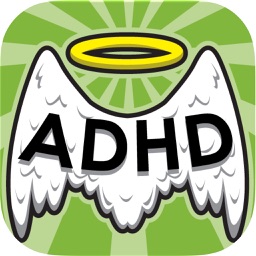Managing time effectively can be a significant challenge for anyone, but for individuals with Attention Deficit Hyperactivity Disorder (ADHD), it can feel especially daunting. The symptoms of ADHD, such as distractibility, impulsivity, and difficulty sustaining attention, can create hurdles in organizing and managing tasks. However, with the right strategies and tools, individuals with ADHD can improve their time management skills and stay on track. This article explores practical techniques and strategies to help those with ADHD manage their time more effectively.
Understanding ADHD and Time Management Challenges
ADHD affects the brain’s executive functions, which are crucial for planning, organization, and time management. People with ADHD often struggle with:
Inattention:
Difficulty focusing on tasks, easily distracted by external stimuli or internal thoughts.
Impulsivity:
Acting without thinking, which can lead to poor planning and decision-making.
Hyperactivity:
Excessive activity that may interfere with the ability to sit down and complete tasks.
These symptoms can lead to procrastination, missed deadlines, and a general sense of being overwhelmed. Understanding these challenges is the first step toward developing effective time management strategies.
Strategies for Effective Time Management
Create a Structured Routine
Developing a daily routine helps establish a sense of predictability and control. People with causes of ADHD benefit from having a clear structure that outlines when tasks should be completed. A structured routine can reduce the cognitive load of decision-making and help maintain focus.
Visual aids, such as calendars or planners, can provide a clear overview of daily, weekly, and monthly tasks. Color-coded systems and visual reminders can help in tracking deadlines and appointments.
Set regular times for waking up, working, eating, and sleeping. Consistency helps reinforce habits and reduces the likelihood of forgetting important tasks.
Break Tasks into Smaller Steps
Large tasks can be overwhelming and lead to procrastination. Breaking tasks into smaller, manageable steps makes them more approachable and less intimidating.
Create detailed task lists with specific, actionable items. For example, instead of “Complete report,” list steps such as “Research topic,” “Draft outline,” and “Write introduction.”
Assign deadlines to each step to create a sense of urgency and keep progress on track.
Employ Time-Blocking Techniques
Time-blocking involves dividing your day into blocks of time dedicated to specific activities. This technique can help maintain focus and prevent tasks from taking longer than necessary.
Allocate specific time blocks for each task or activity. Use timers to remind you when it’s time to switch tasks or take breaks.
Schedule short breaks between work periods to recharge and prevent burnout. Techniques like the Pomodoro Technique, which involves 25-minute work intervals followed by 5-minute breaks, can be particularly effective.
Utilize Organizational Tools
Various tools and apps can assist with time management and organization. Leveraging technology can streamline processes and reduce the cognitive effort required to stay organized.
Use digital calendars to schedule and set reminders for appointments, deadlines, and tasks. Syncing your calendar across devices ensures you have access to your schedule wherever you are.
Apps like Todoist, Trello, or Microsoft To Do can help track tasks, set priorities, and monitor progress. Many of these apps offer features like task delegation and deadline reminders.
Implement ADHD-Friendly Techniques
Certain techniques specifically cater to the needs of individuals with ADHD and can enhance time management.
Place sticky notes or visual cues in prominent locations to remind you of important tasks and deadlines.
Partner with a friend, family member, or colleague who can help keep you accountable and provide encouragement.
Develop Healthy Habits
Healthy habits contribute to overall well-being and can improve time management by reducing stress and increasing focus.
Ensure you get adequate, restful sleep each night. Lack of sleep can exacerbate ADHD symptoms and impair cognitive function.
Eat a balanced diet to support brain health and energy levels. Avoid excessive caffeine and sugar, which can affect concentration and mood.
Engage in regular physical activity to boost mood, improve focus, and reduce restlessness.
Seek Professional Help
For some individuals with Symptoms of ADHD , professional help may be necessary to develop effective time management strategies. Therapy and coaching can provide personalized support and guidance.
ADHD coaches specialize in helping individuals develop practical strategies for managing time, organizing tasks, and achieving goals. Cognitive-behavioral therapy (CBT) can help address the underlying cognitive and behavioral patterns contributing to time management difficulties.
Conclusion
Effective time management is a skill that can be developed with the right strategies and tools. For individuals with ADHD, understanding the unique challenges and implementing tailored techniques can make a significant difference in staying on track and achieving goals. By creating a structured routine, breaking tasks into manageable steps, utilizing organizational tools, and incorporating healthy habits, individuals with ADHD can enhance their time management abilities and lead more organized, productive lives. Remember, it’s a journey, and finding what works best for you may take some experimentation and adjustment. With persistence and the right support, managing time effectively can become a reality.







Leave a comment
Your email address will not be published. Required fields are marked *